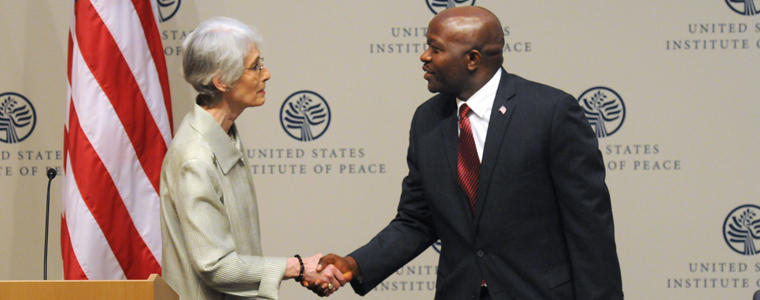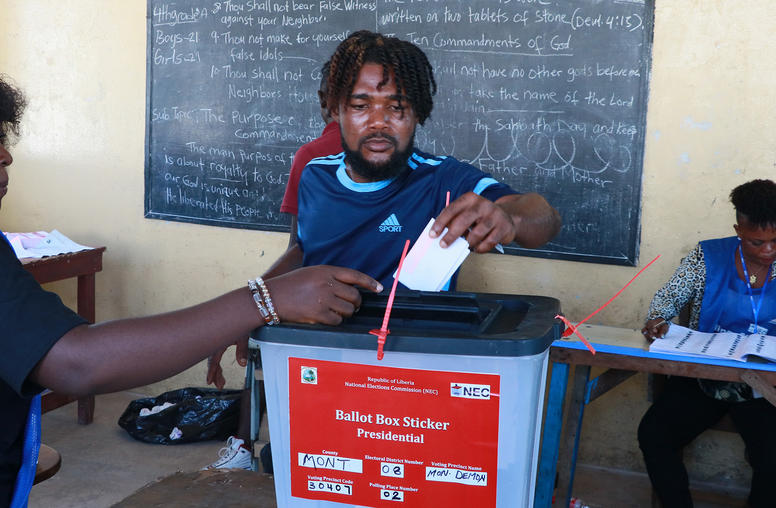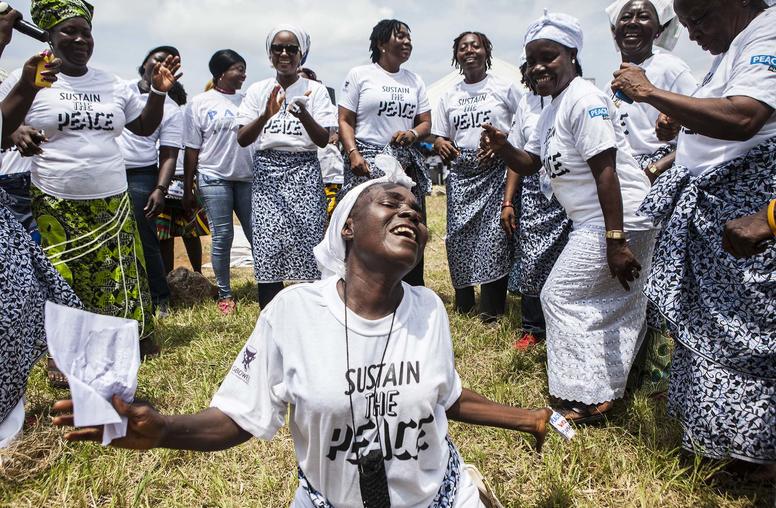Partnering for a Shared Vision of Liberia's Economic Future
Following the inaugural session of the U.S.- Liberia Partnership Dialogue, intended to promote cooperation on areas of mutual interest, several members of Liberia’s cabinet will continue the discussion at the United States Institute of Peace with members of civil society, private sector, and diaspora in hopes of finding new ways to partner in achieving greater equitable economic development in Liberia.

President Ellen Johnson Sirleaf and her government envision a nation rising from an economic collapse to a strong recovery. They have put forth a plan to transform Liberia through a long-term national development strategy aimed at improving the country’s infrastructure, economy, and rule of law. During its outreach on Vision Rising 2030, the Government of Liberia has emphasized that implementing this vision will require strong support of several ministries and a pragmatic, comprehensive and inclusive strategy to ensure that the gains are shared by all Liberians. Following the inaugural session of the U.S.- Liberia Partnership Dialogue, intended to promote cooperation on areas of mutual interest, several members of Liberia’s cabinet will continued the discussion at the United States Institute of Peace with members of civil society, private sector, and diaspora in hopes of finding new ways to partner in achieving greater equitable economic development in Liberia.
This event will featured the following speakers:
- Augustine Ngafuan
Liberian Minister of Foreign Affairs - Amara Konneh
Liberian Minister of Finance - Florence Chenoweth
Liberian Minister of Agriculture - Axel Addy
Liberian Minister of Commerce and Industry - Cynthia Akuetteh
Remarks
Deputy Assistant Secretary for African Affairs, Department of State - Dr. Vivian Derryck
Moderator
President, The Bridges Institute


